Our digestive system is the most fundamental aspect of our health. There are many components that contribute to a happy gut. Choosing foods that promote digestive health is the best thing you can do to ensure your gut has the best chance at functioning well. Fibrous fruits and vegetables, fermented foods and healthy fats are good foods to incorporate in your diet.
We’ve listed 21 gut friendly foods below and explained why they are so good!
Avoiding foods that aren’t gut friendly is also important. Foods to avoid include sugary beverages, refined oils, artificial sweeteners and alcohol, which may inhibit the growth of healthy gut bacteria.
Tempeh
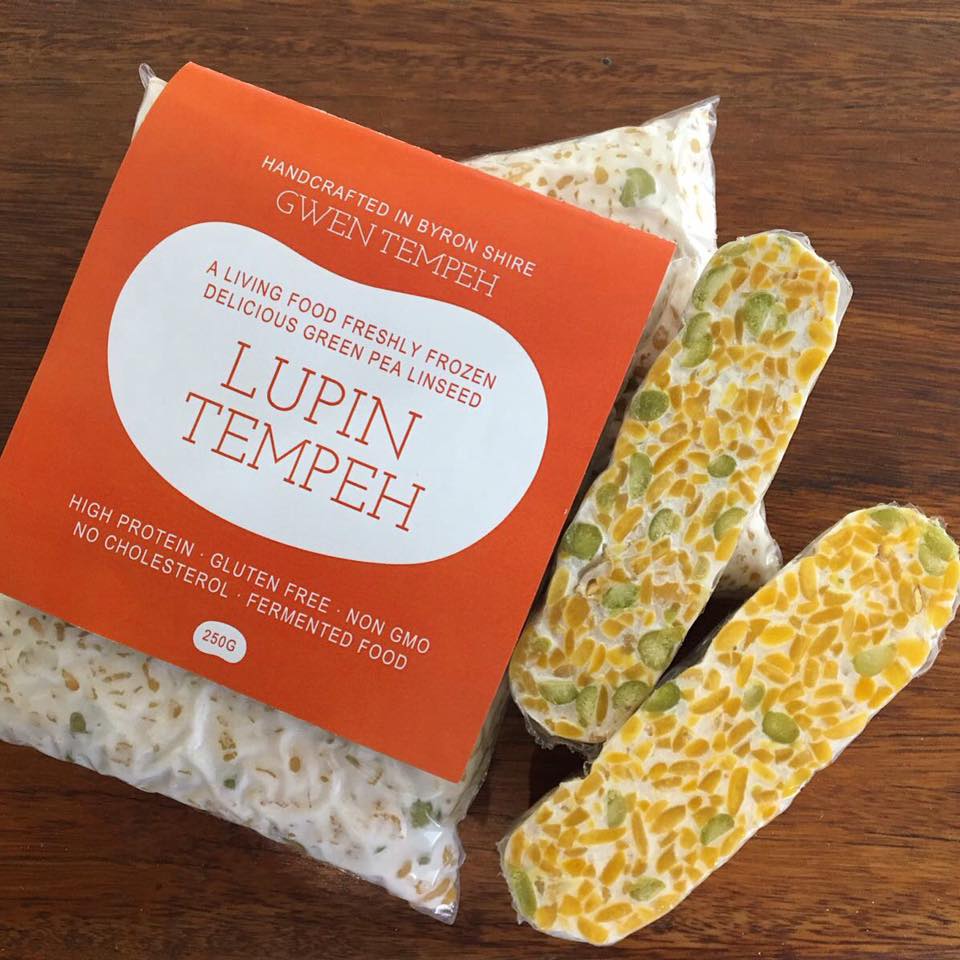
Did you know tempeh is a gut friendly food? It’s easy to digest and easy to prepare!
Tempeh is a traditional Indonesian food made from cooked, fermented beans. It has a delicious nutty flavour and is super-nutritious.
Tempeh is a great source of probiotics and protein as well as vitamins, minerals and fibre. Add to your stir fry or salad for balanced nutrition and happy digestion.
Ghee
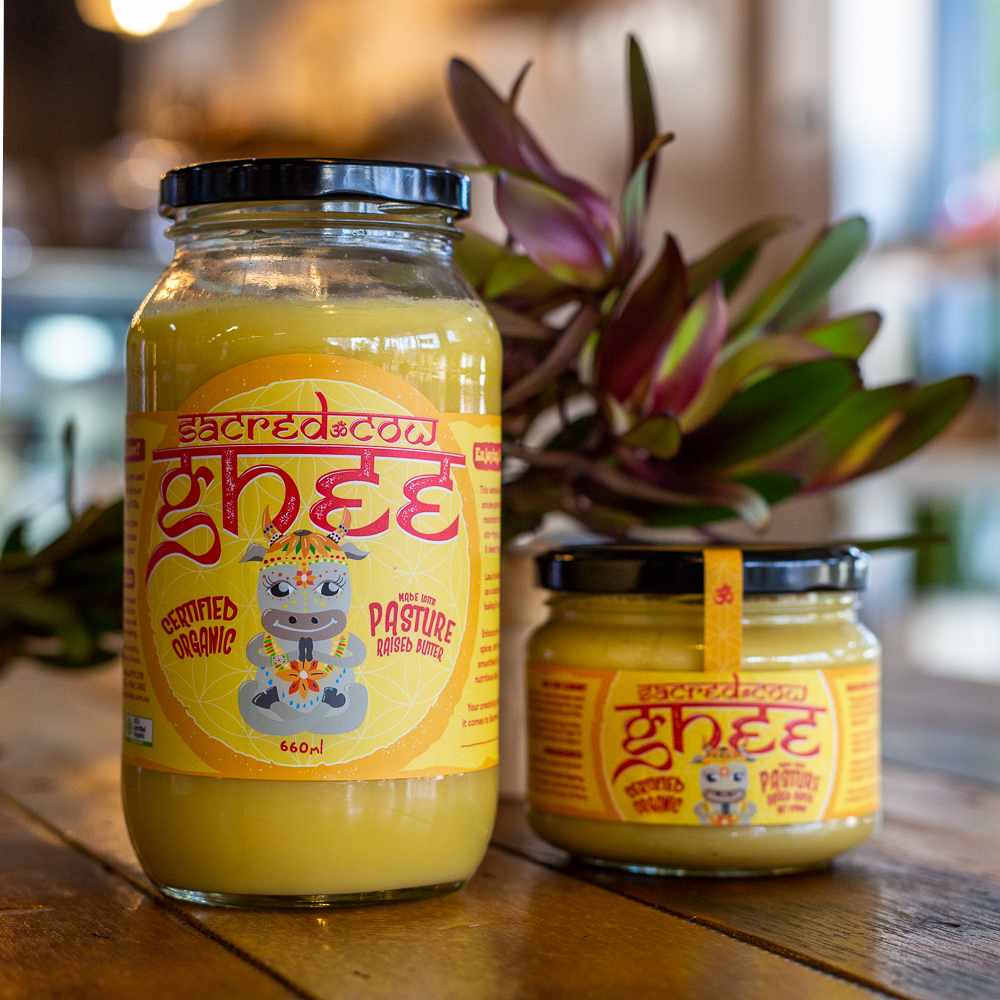
In Ayurvedic medicine ghee is best known for its digestive stimulating effects. It is said to enhance ‘Agni’ or digestive fire, promoting healthy production of stomach acids to break down foods. It also has a healing and nourishing effect on the intestines, providing energy for the cell walls, allowing nutrients to be absorbed and toxins to be effectively removed. The healing properties are due to the butyrate acid content, a short chain fatty acid that also balances gut flora and reduced candida overgrowth. It also contains antioxidants and fat-soluble vitamins A, D, E and K, that nourish the brain and the body and reduce inflammation. For these reasons ghee has a gentle but deeply cleansing and nurturing effects, enhancing vitality and wellness for the body and mind.
Sauerkraut
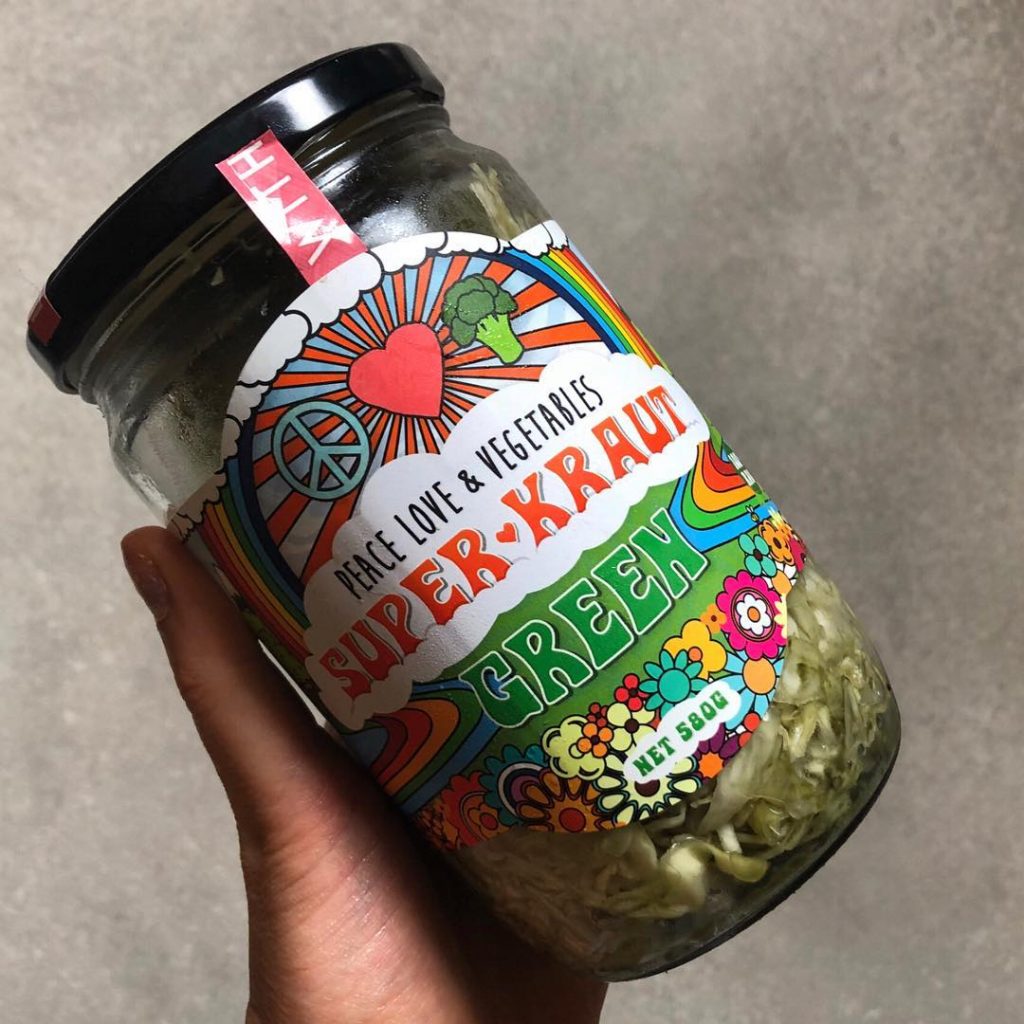
Here’s a super gut-friendly food…it’s way up there on the list! Sauerkraut!
Before refrigeration, fermentation kept foods edible and nutritious for longer. Although the name is German and sauerkraut is popular there, its origins are in China, 2000 years ago. Naturally occurring yeasts and bacteria consume the sugars in vegetables, mainly cabbage. The process produces 100 trillion beneficial gut microflora which are available for our digestion and immunity. They are comfortably delivered to you amongst dietary fibre and prebiotics so they can establish and continue to thrive and help the body once eaten.
Other nutrients found in kraut include, vitamins C, K and A, folate, calcium, iron, potassium, copper and manganese. As well as enzymes that help us digest our other foods. This ancient food nourishes the body and protects against infections and disease.
Coconut Water
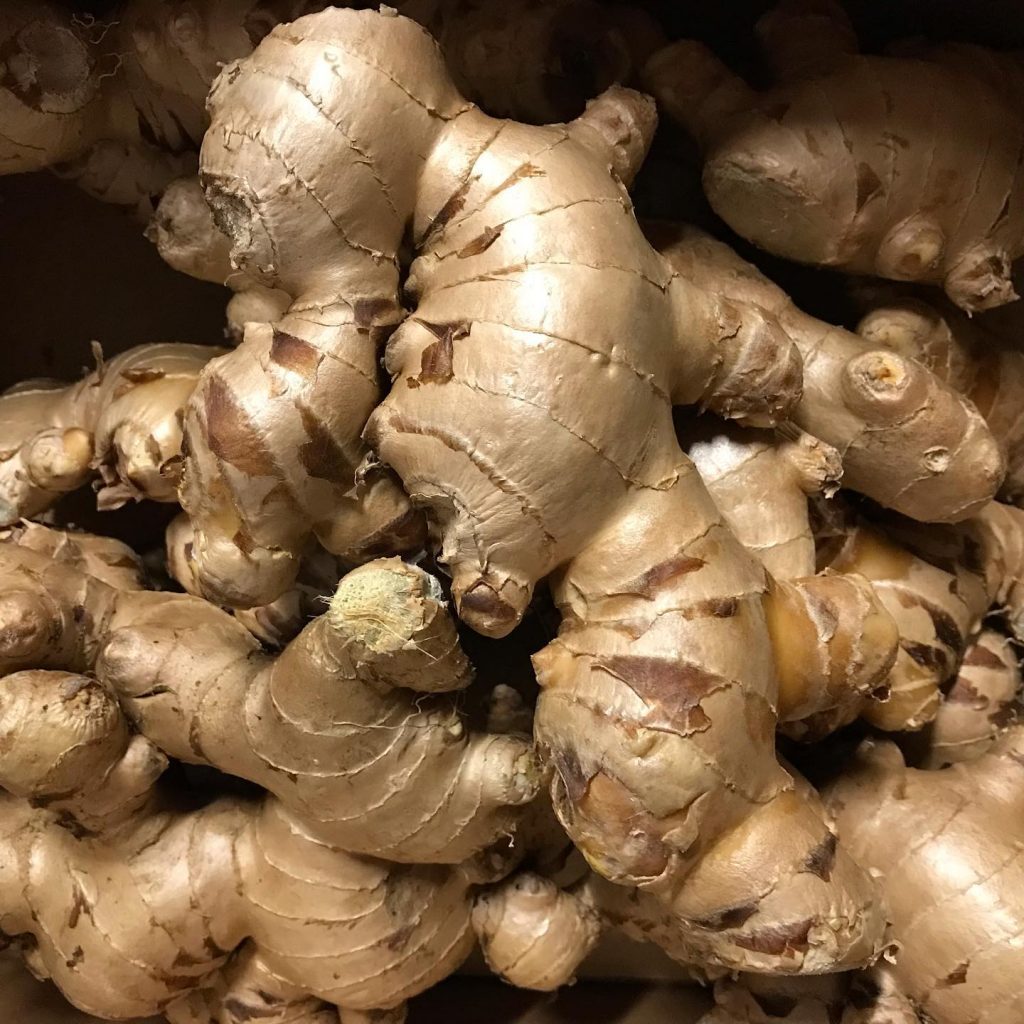
Ginger is a gut superfood. It helps the stomach process food, quickening the time taken to digest food here, soothing indigestion, nausea and vomiting. It also relaxes gastrointestinal muscles, managing any discomfort from muscle spasm. Gingerol is the component of ginger that is responsible for these benefits through its anti-inflammatory and antioxidant properties.
Because if its anti-bacterial properties, ginger is corrective to infections and dysbiosis, alleviating any discomfort quickly. Incorporating ginger in cooking and teas on a daily basis can prevent susceptibility to infections, irritable bowel and leaky gut. Try simple tea of grated ginger, lemon and honey any time of the day to enjoy these benefits.
Coconut Water
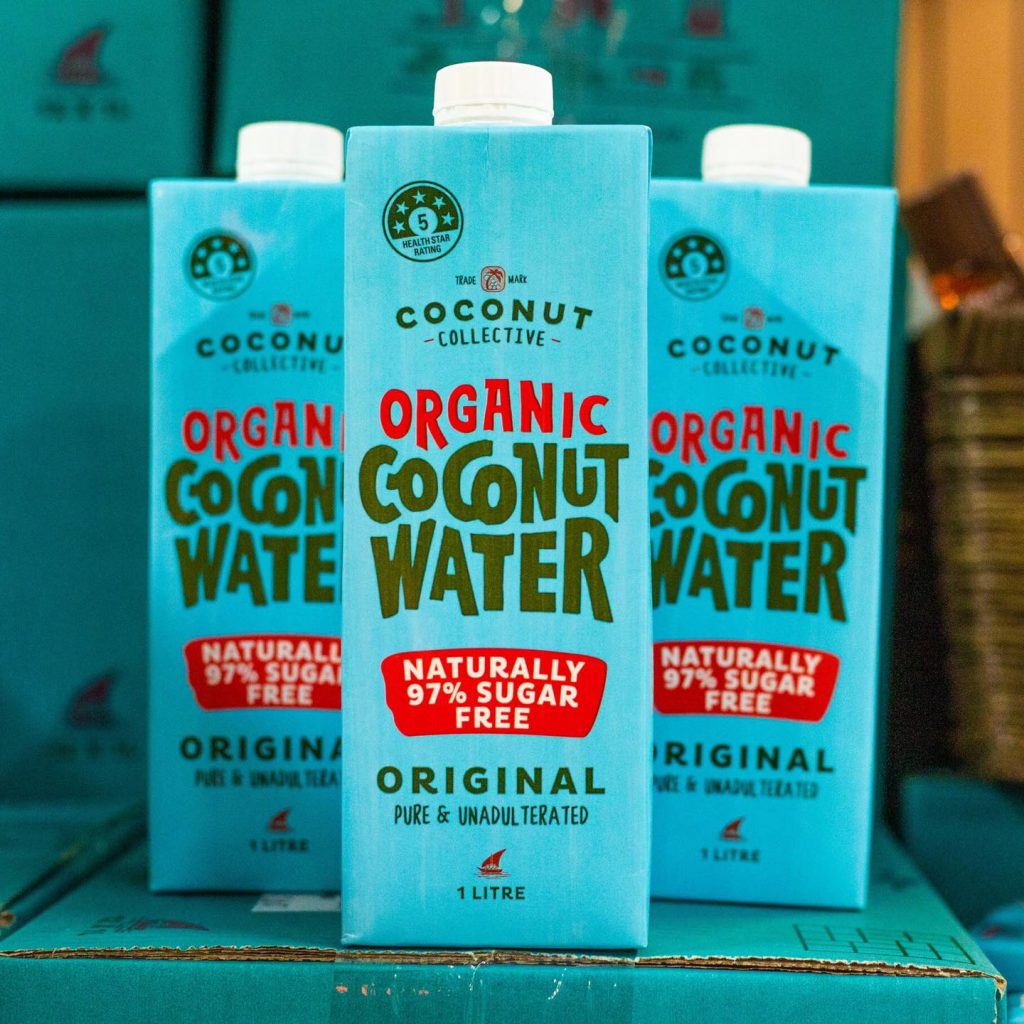
Water is essential for our entire body. It is necessary for every step of digestion. Right from the beginning we need water to create saliva to chew and soften our food. 💧
Water is needed for digestive enzymes and stomach lining. It then allows flow of secretions between the small intestine and the liver and pancreas. This is where nutrients are absorbed into our bloodstream, which needs enough water content to transport all around the body.
The large bowel also needs water to function properly, allowing minerals to be absorbed and toxins to be removed from the body. Effective, regular bowel movements depend on adequate water consumption. If we are chronically dehydrated out digestive system builds up debris and we cannot receive the proper benefits of our food. After the digestion, all other systems and functions of our body rely on water, we are 60% water!
Coconut water is excellent for rehydration as its a natural source of electrolytes and nutrients. It’s perfect for situations where the body might be especially dehydrated like after exercise or illness. 🥥🥥🥥
Fibre
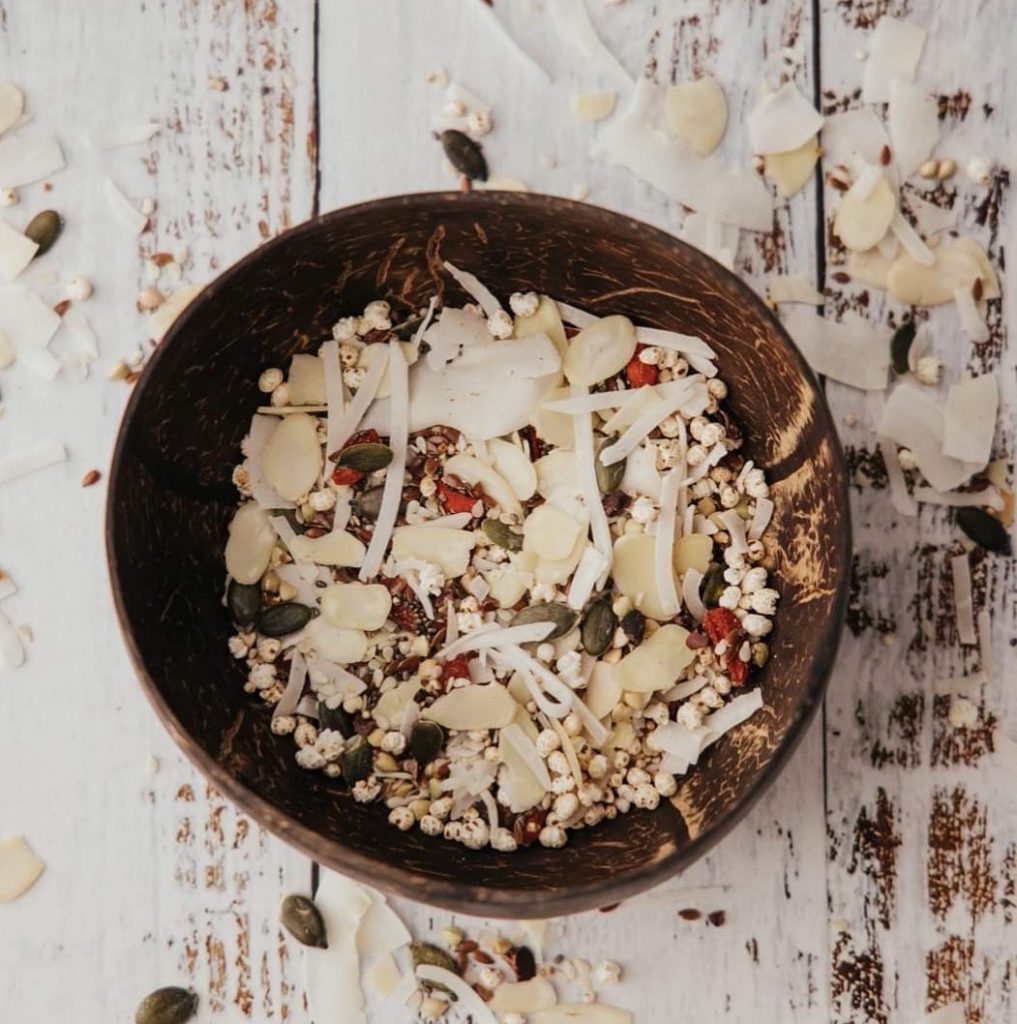
Bothered by irregularity, or uncomfortable digestion?
The first meal of the day sets up your digestive capacity for the whole day. So starting the day with a nourishing high fibre breakfast is the best thing you can do to support your gut.
GoodMix Blend 11 is a naturopathically formulated cereal full of gut beneficial fibre and prebiotics. The mix is gentle and nourishing, with chia seeds, goji berries, pepitas and linseeds for omegas and antioxidants. Its gluten free non-reactive grains, amaranth, millet and buckwheat for B vitamins and prebiotics. The formula is better soaked to activate all the goodness and soothe the gut.
The diverse fibre provides soluble and in soluble fibre types to stimulate and soothe the gut. Diverse fibre creates an intestinal transit time (time taken for food to move through the gut) that allows for absorption of nutrients and excretion of wastes.
The Wholefood Pantry has Blend11 in bulk bins and in packets
Miso
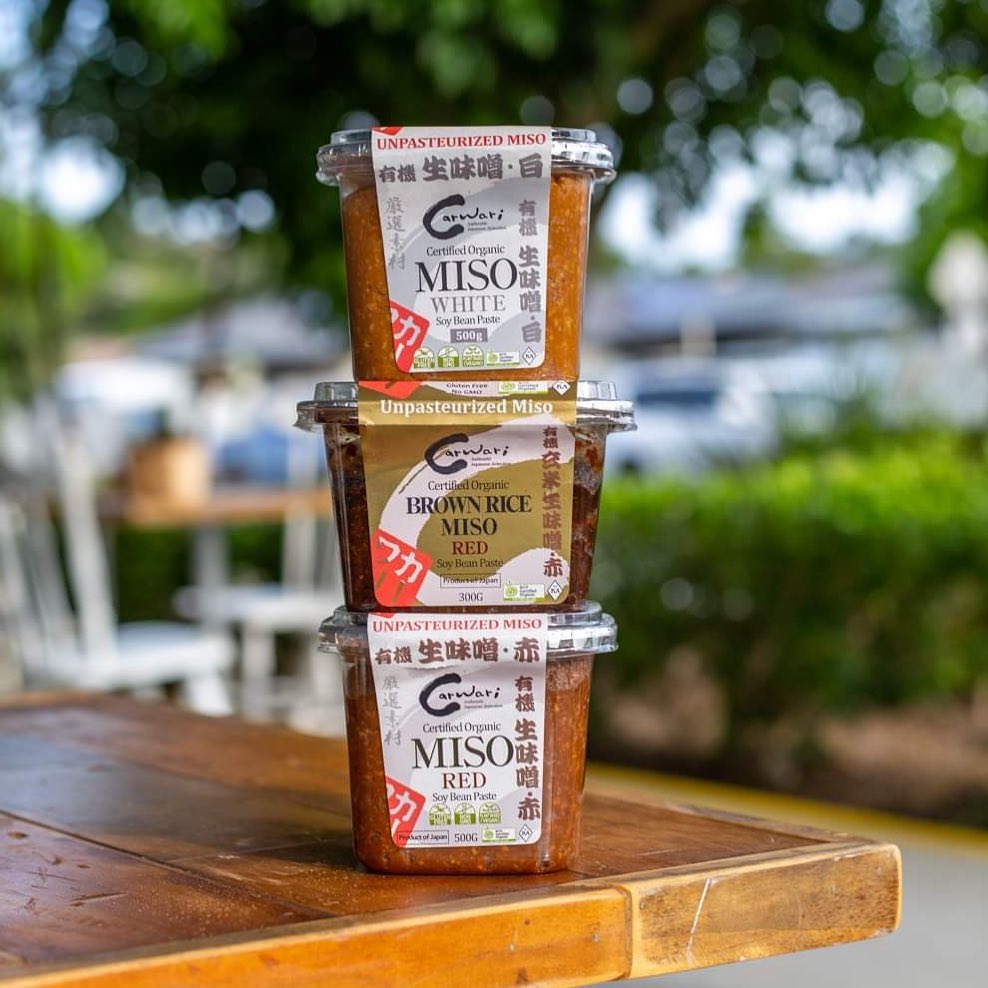
Ichiju-issai is a Japanese term that was born during the Kamakura period (1185-1333) to describe the minimum balanced meal in Japanese food culture. It includes rice (which is considered the base of the meal), a bowl of miso soup, and a side dish.
The ichiju-issai style of preparing food became common among the samurai society, giving birth to the custom of serving miso soup with everyday meals.
Since then miso has become more versatile, it can be used as a condiment as well as a soup. It’s delicious with roasted vegetables, on toast or in a salad dressing.
Incorporating miso in your diet on a daily basis, fights inflammation and improves gut health.
Being a fermented food, it provides an array of enzymes and probiotics helping balance your gut flora. Miso also contains lots of B vitamins that nourish your nervous system and are required for breaking down food to usable energy for the body. All in all, miso is packed with nutrients and helps to gut it many ways.
Avocado
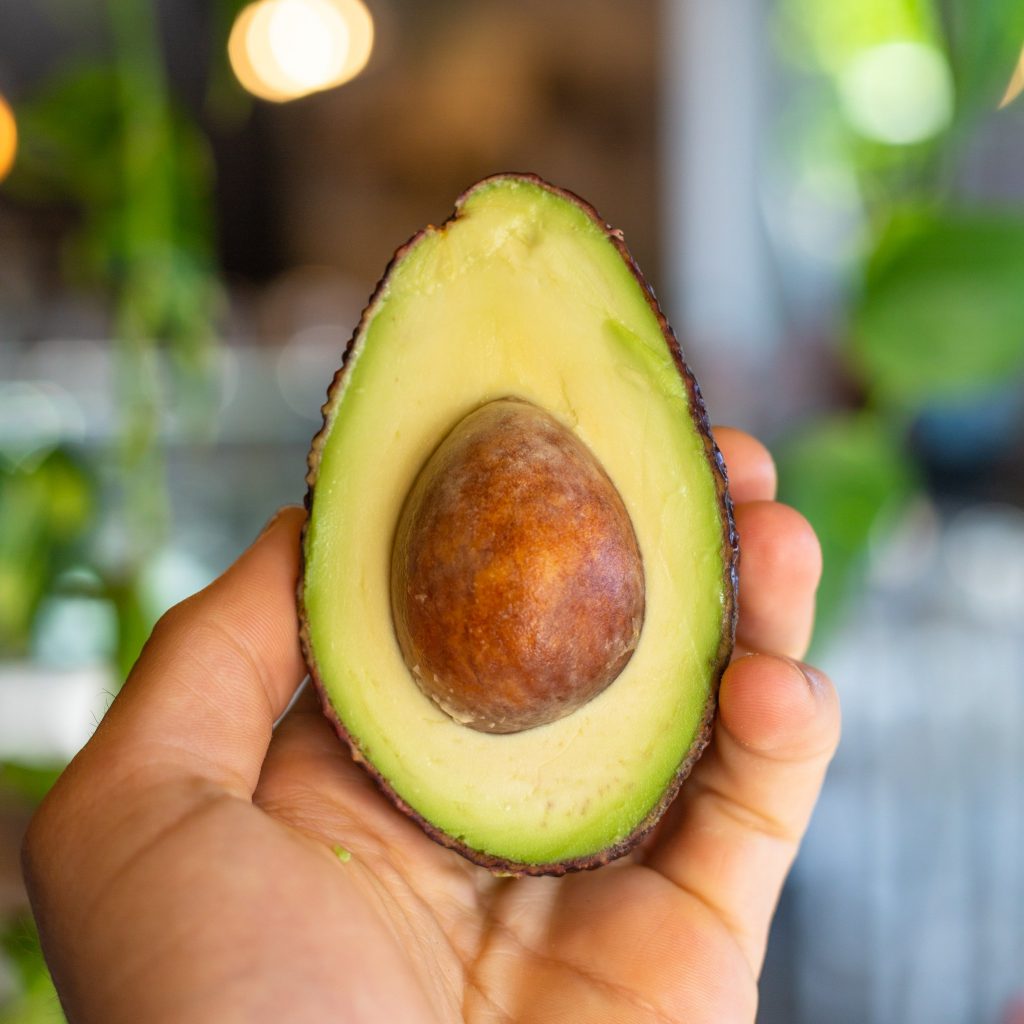
Did you know avocados are great for the gut? 🥑
Avocados are well known as a good source of essential fats. An avocado has about 12grams of soluble fibre. They help maintain healthy gut mircoflora and enzyme activity.
They are tasty and easy to incorporate as a snack or a side with your meal. Also delicious blended into a creamy dressing or smoothie.
Marshmellow
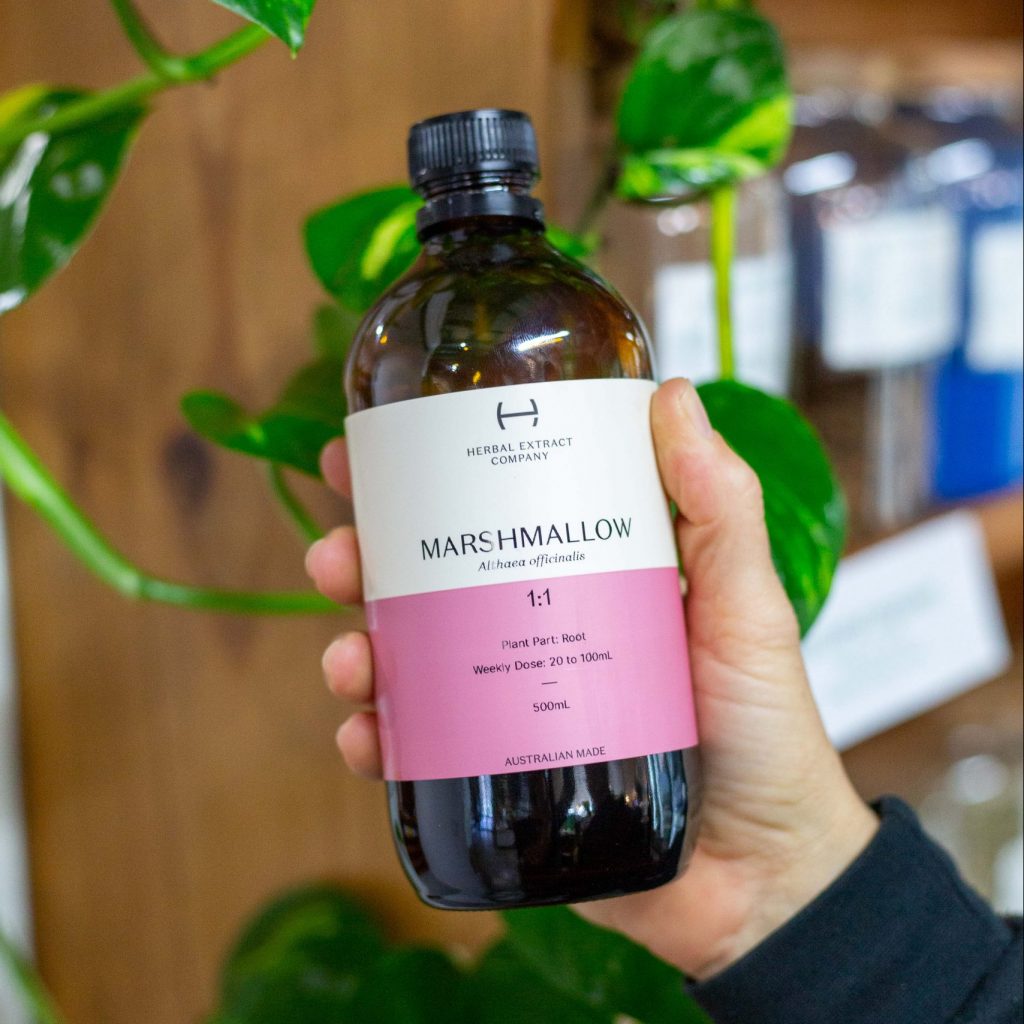
Marshmellow is a beautiful herb that is soothing and supportive to mucus membranes in the body. It helps heal any inflammation or damage in the respiratory tract and digestive system.
It contains mucilage, flavonoids, phenolic acids and starch which assists food movement through the gut and creates a supportive environment for micro flora.
Marshmellow is great to incorporate in any cleanse program or to combat, infection, dysbiosis and constipation.
Pawpaw

Christopher Columbis called this tasty tropical food “fruit of the angels”. Papaya contains an enzyme, papain, which helps digest proteins, making it particularly helpful for digestion. Breaking down meats, gluten and milk can be a difficult, high energy process if our own enzyme producing capacity is compromised. The protoelytic enzymes in papaya help us get the nutritious benefits from protein in our diets that are highly essential for growth, repair and immunity.
Additionally, papaya seeds contain an alkaloid compound, carpaine that kills intestinal worms and parasites.
Combined with the protein metabolizing action of the flesh of the fruit, the gut is no longer inhabitable by parasites that leach our nutrients and vitality.
In this way papaya is preventative and remedying for digestive issues and symptoms caused by lowered digestive capacity, from stress, overload or infection. Its healing qualities can sooth gas, bloating, leaky gut and constipation. By both starting digestion well in the stomach and killing opportunistic parasites, it reduces toxic build up in the colon and allows nourishment and healing.
Brussel Sprouts
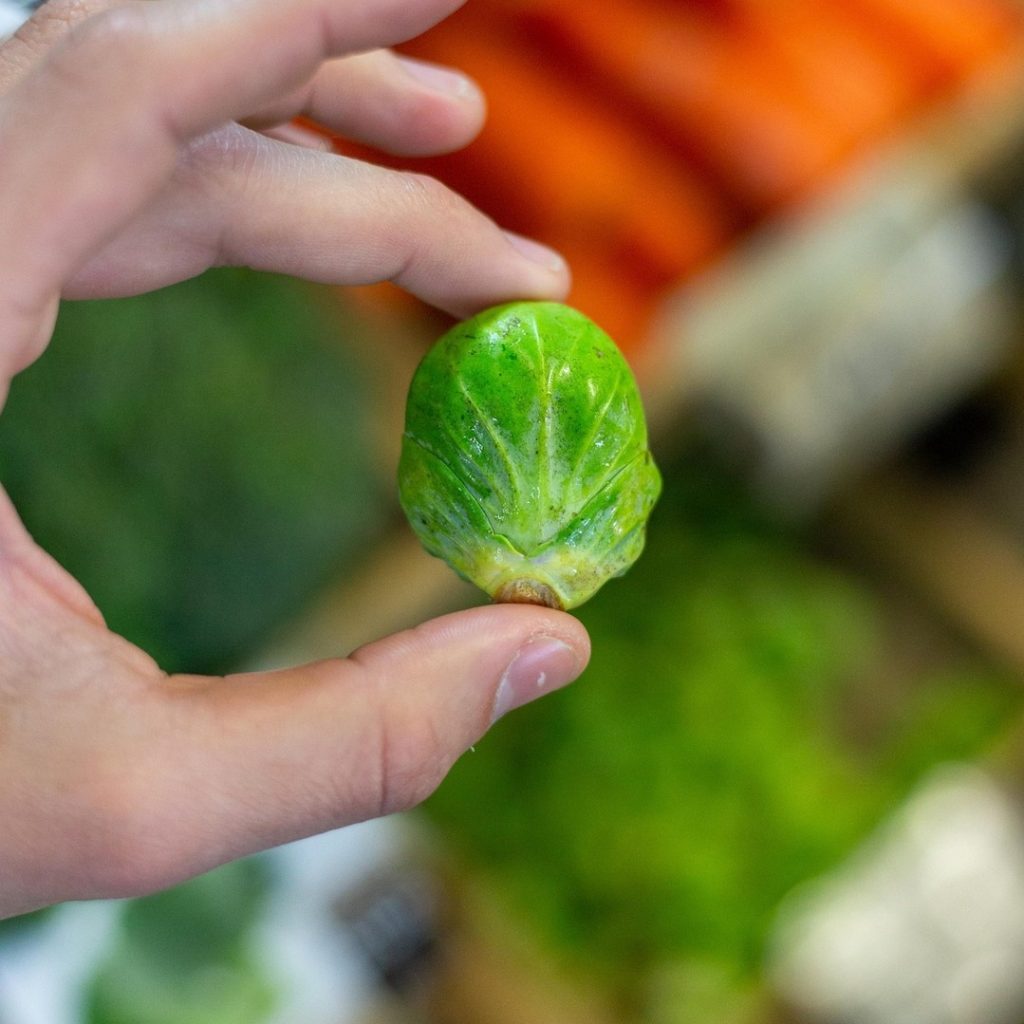
Love em or hate em? Brussel sprouts are an excellent gut friendly food! 😄
Brussels sprouts are part of the brassica family along with cabbage, kale and broccoli. This family of leafy vegetables are rich in fibres such as cellulose, hemicelluloses and pectin, as well as the compound glucosinolate, which gives them their bitter taste and provides fuel for the gut bacteria to help create short chain fatty acids (SCFAs) within the gut environment.
SCFAs such as acetate, propionate and butyrate strengthen the gut barrier function and have several health benefits such as supporting immunity, healthy weight, glucose balance and cholesterol levels, that originate from the healthy balance of the gut bacteria and healthy gut lining.
80g of sprouts (around 7 sprouts) contains around 2g of fibre, which helps to ensure adequate bowel movement and frequency.
Chia
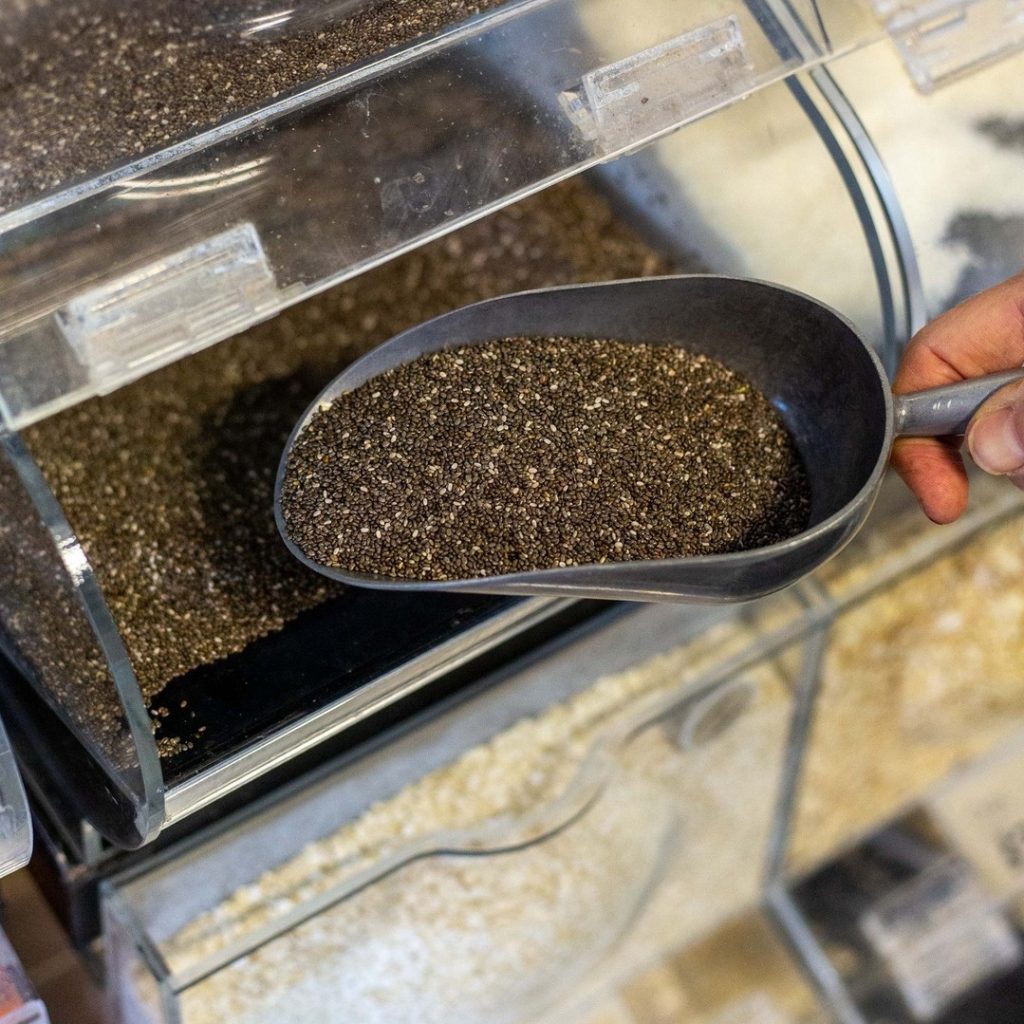
Chia seeds come to us from the Mayan and Aztec cultures of South America. They are full of nutrients, fibre and omega 3.30g of chia provides 4g of protein, 9g of fat and 11g of fibre. As well as manganese, magnesium, zinc, vitamin B3, B1 and potassium.
Chia absorbs 30 times its weight in water. So soaking your chia seeds is essential to reap the benefits of this superfood. Once they are soaked they provide hydration for the gut wall and electrolytes for the rest of the body. Soothing the intestines and promoting digestive motility with their high soluble and insoluble fibre content, they help sweep out toxins and cholesterol from the body. They help us absorb fat soluble vitamins and contain antioxidants that protect healthy fats and aid cellular detoxification. In short, keeping everything running smoothly.
Coriander
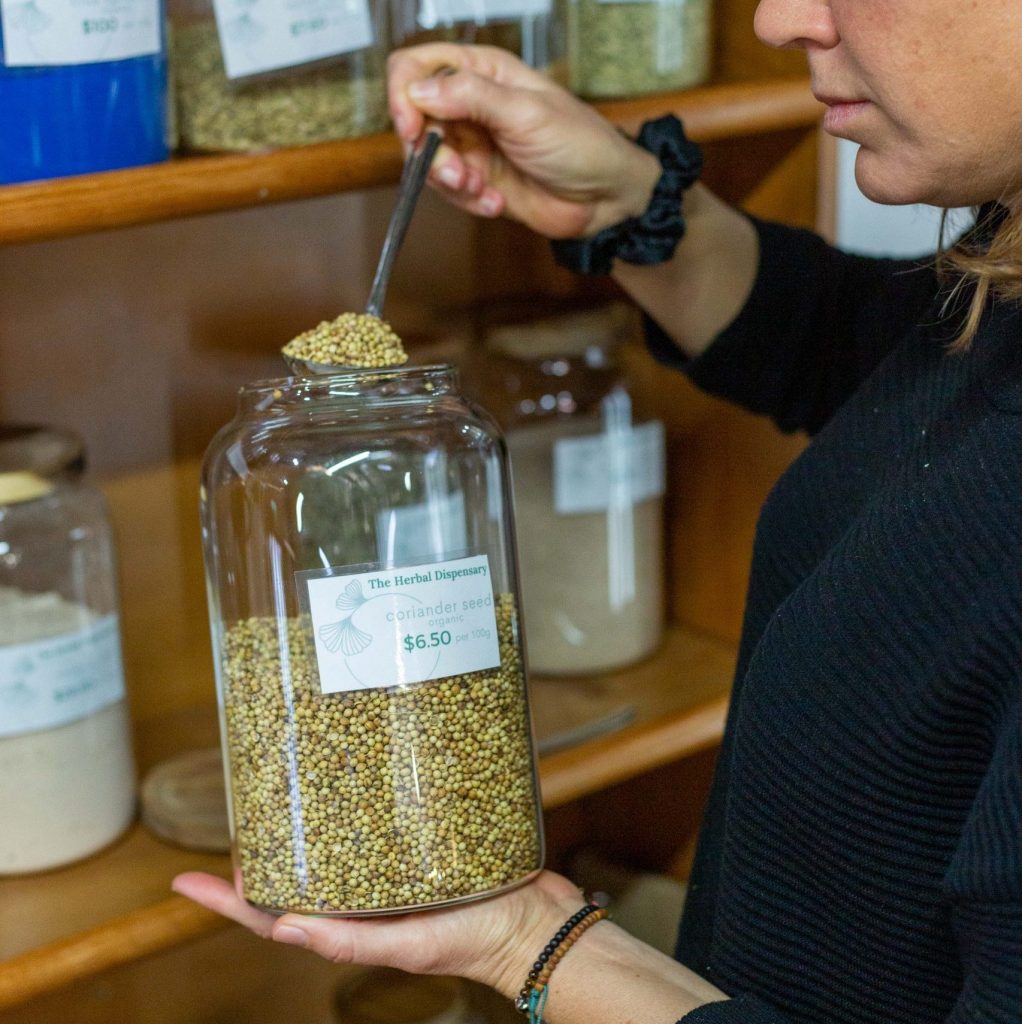
Coriander has been used throughout the world for 7000 years. Both the seeds and the leaves of coriander have benefits for the digestive system.
The leaves are anti-microbial, they fend off unfriendly bacteria, fungi and parasites. It provides a cleansing action and increases digestive capacity, or ‘agni’. It is also very nutritious source of vitamins and minerals.
The seeds are soothing to the digestion, used in cooking or as a tea to promote digestion and treat pain, bloating and loss of appetite.
Kefir
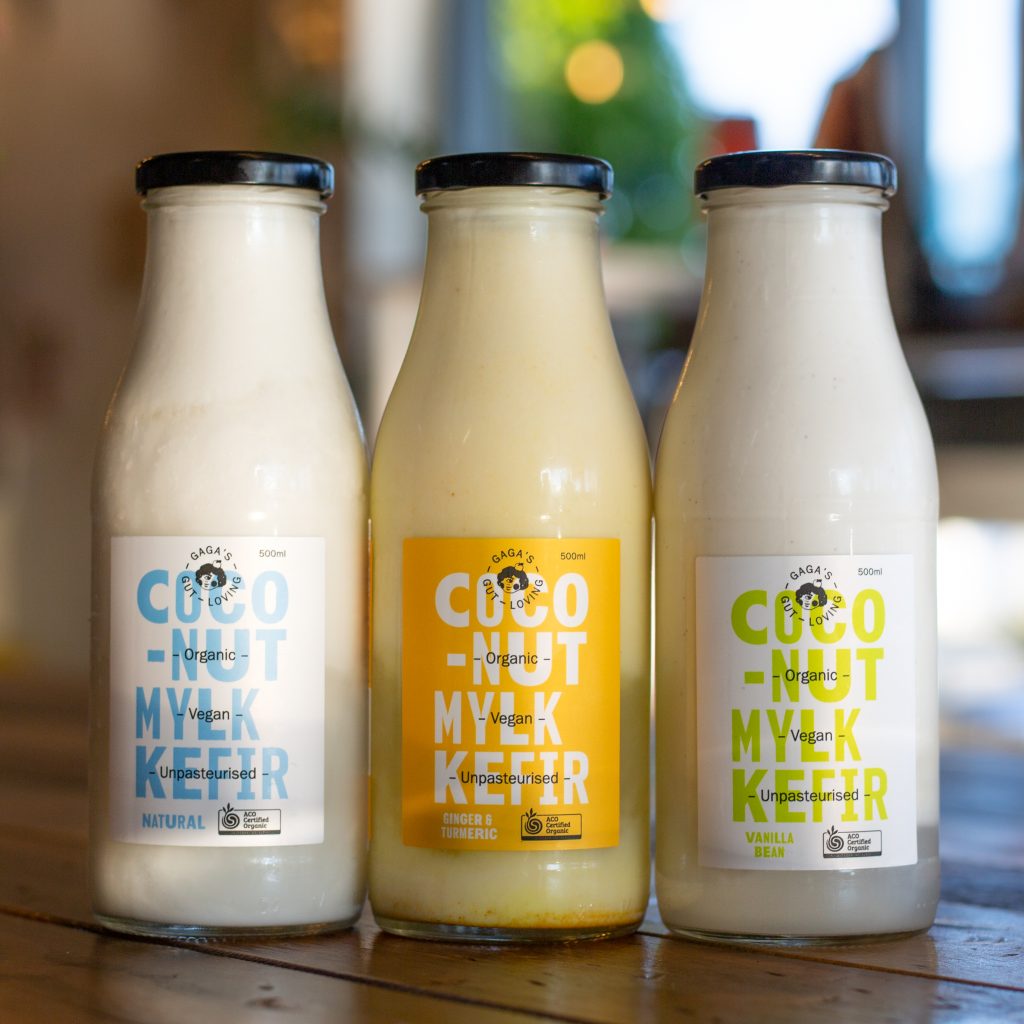
How can we most efficiently re-establish our gut micro flora? When it comes to high dose, big diversity and most readily established sources of probiotics, kefir is said to be superior.
Kefir contains a wide variety of probiotic strains, as many as 2.4 trillion CFU per cup all naturally grown, established and transported to you in a prebiotic rich environment.
Kefir is a drinkable yoghurt. The name means ‘foam’ ‘milk’ and ‘good feeling’. Kefir is a traditional fermented milk drink from the Caucasus Mountains. The people there have, for a long time protected their kefir culture from outsiders to maintain its potency and strength. They have a life expectancy of 100 years, possible due to the health benefits of kefir.
Sprouts
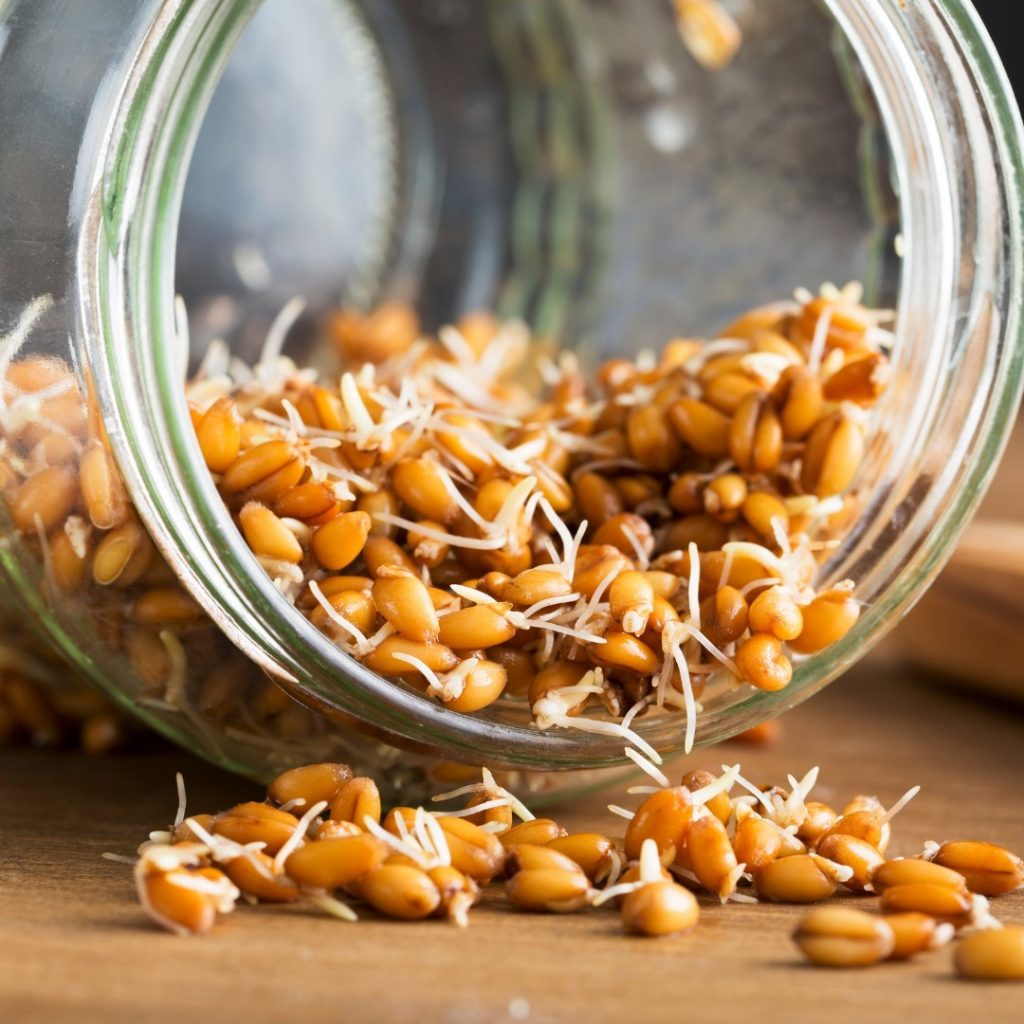
Sprouted grains and seeds are great source of readily digestible nutrients and vitality. They are the very origin of an entire plant and have everything ready to grow and thrive. Grains and seeds are full of protein, starch, fat, enzymes and fibre but are sometimes difficult to breakdown or aggravating to the digestion. When sprouted however, a lot of the hard work is already done. The little storage containers are opened and all the goodness is available. Sprouting disables ‘anti-nutrients’, phytates, trypsin inhibitors and tannins or saponins, that protect the young plant from birds, animals and humans, and make digestibility impossible without cooking or grinding.
Once sprouted the bioavailability of minerals and vitamins, is greatly increased. The seeds own enzymes are activated in the sprouting process – amylase to break down the starches, and protease to break down the proteins, greatly reducing the work our own digestion has to do. The fibre content of the grains changes in sprouting to make it more prebiotic, supporting our gut bacteria.
So many reasons to have some sprouts every day, very easy to add to any meal bring life and crunch to your lunch, or dinner.
Chamomile

Chamomile is a beautiful herb known for its calming and soothing effects on digestion and nervous system. The flowering tops are very pretty white and golden blooms that make a delicious cup of tea.
It is also very beneficial for our gut, being antibacterial, antiviral and would healing it helps keep our micro flora balanced and keeps the gut wall healthy.
Chamomile inhibits helicobacter pylori bacteria which commonly becomes overpopulated due to stress or poor diet causing discomfort and stomach ulcers.
Because chamomile is a relaxant to both the gut and the nervous system, its effects on the gut-brain connection are profound. Many stress induced digestive issues can be relieved by, firstly the aromatic relaxing quality of chamomile, which reduces the anxiety response in the nervous system. Secondly by and active constituent anodyne, which is an antispasmodic, reducing cramping, constipation and stomach pains.
Chamomiles anti-inflammatory action reduces congestion, swelling and pain. When we are more relaxed and comfortable we can then make better choices about what to eat, drink and do to nourish our body and mind. 🌼
Licorice
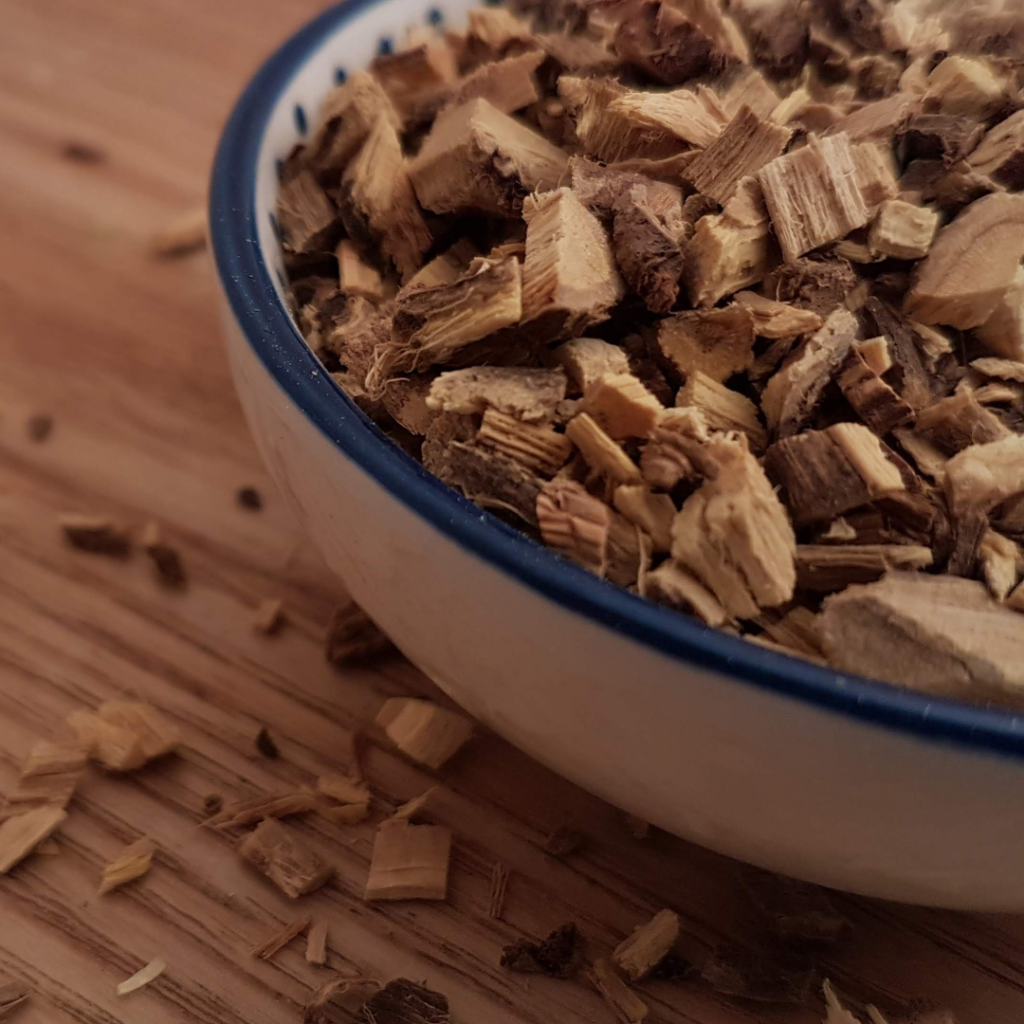
Did you know Licorice is a herbaceous, perennial legume? 
Licorice is anti-inflammatory, muco-protective and mild laxative. These properties assist healing in the stomach and the colon, soothing and protecting the gut wall. Licorice is also supportive of the adrenal system, so I f you notice that your gut symptoms increase when you’re under the pump, your workload increases or stresses accumulate, some licorice in your herbal tonic will help give relief to your symptoms and help you get things done
Sol
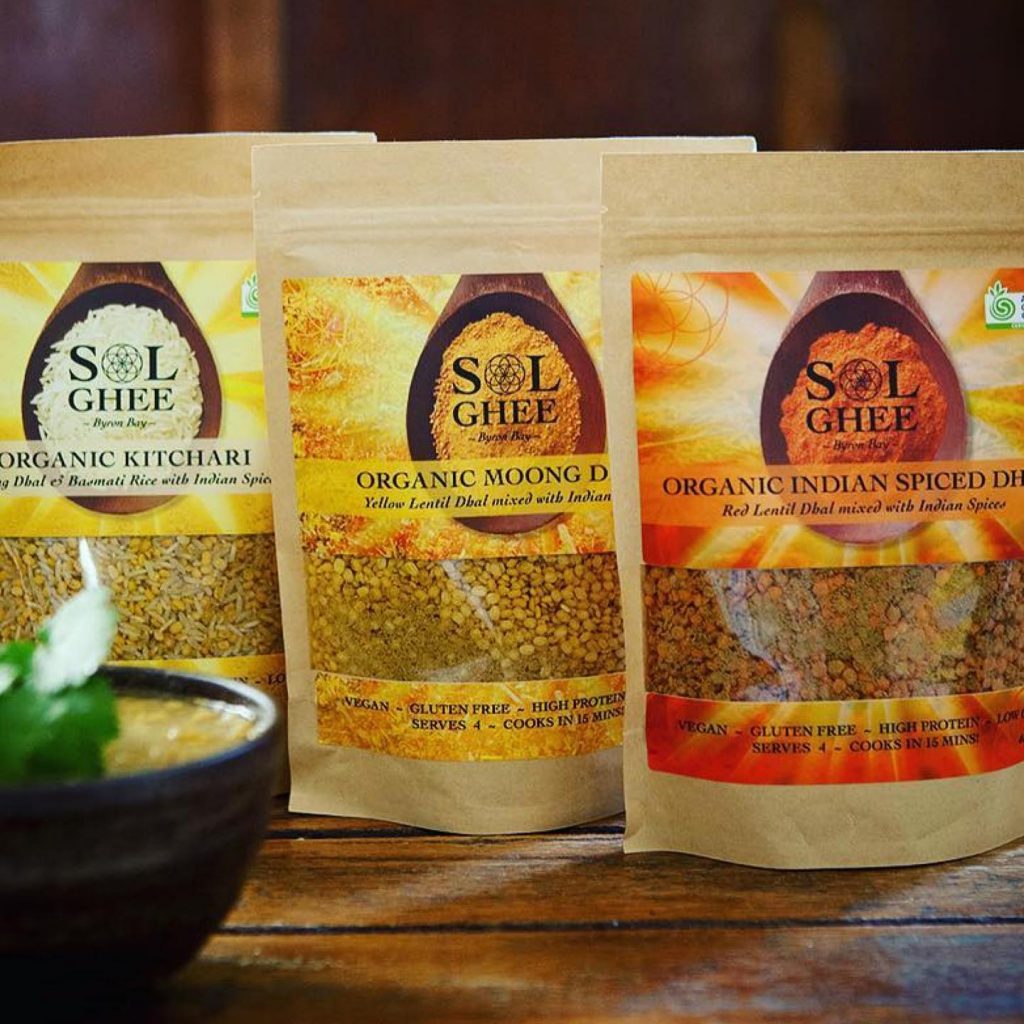
“According to Ayurveda, digestion and the gut play leading roles in immunity. Ayurveda speaks about a substance or a process called Ojas, the finest product of healthy digestion, which strengthens the immune system and has many beneficial effects on the mind and body”.
As we each express our unique genetic make-up, which is then influences by diet, lifestyle, stress and environmental factors, we all have specific needs and requirements. Traditional systems such ayurveda have been tracking human wellness for thousands of years and have much to offer in establishing a balanced, comfortable state of being.
Ayurveda offers a gentle, effective, nourishing approach to healing the gut by providing easily digestible whole foods rich in fibre and protein with tonifying herbs and spices that soothe and stimulate the digestive process. The diet is very low allergenic, based on rice and moong dahl, the best tolerated legume. Being well cooked and eaten fresh the meals provide all the essential nutrients in the most easily digestible form. Allowing your body the vitality and time to repair and restore in any areas that are in balanced.
Photo https://www.goodmix.com.au/
Slippery Elm
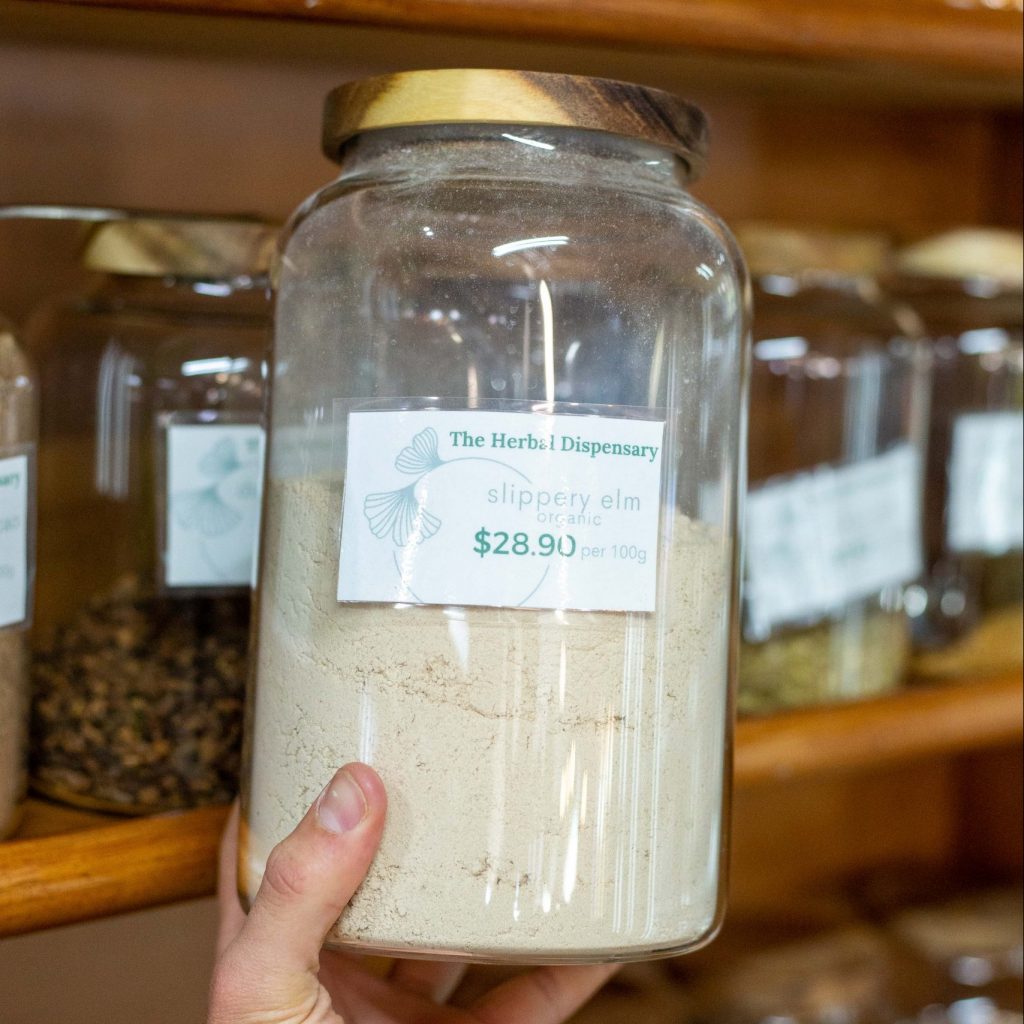
Slippery elm is a demulcent, laxative and emollient, meaning it’s soothing, healing and softening for the digestive tract.
Slippery elm helps move food along the in gut and protects the gut wall. It’s great for treating gastritis, peptic ulcer, reflux, irritable bowel syndrome, constipation, digestive system inflammation and to correct dysbiosis. The mucilage and starch that it contains provides a prebiotic that promotes healthy gut flora.
Broth
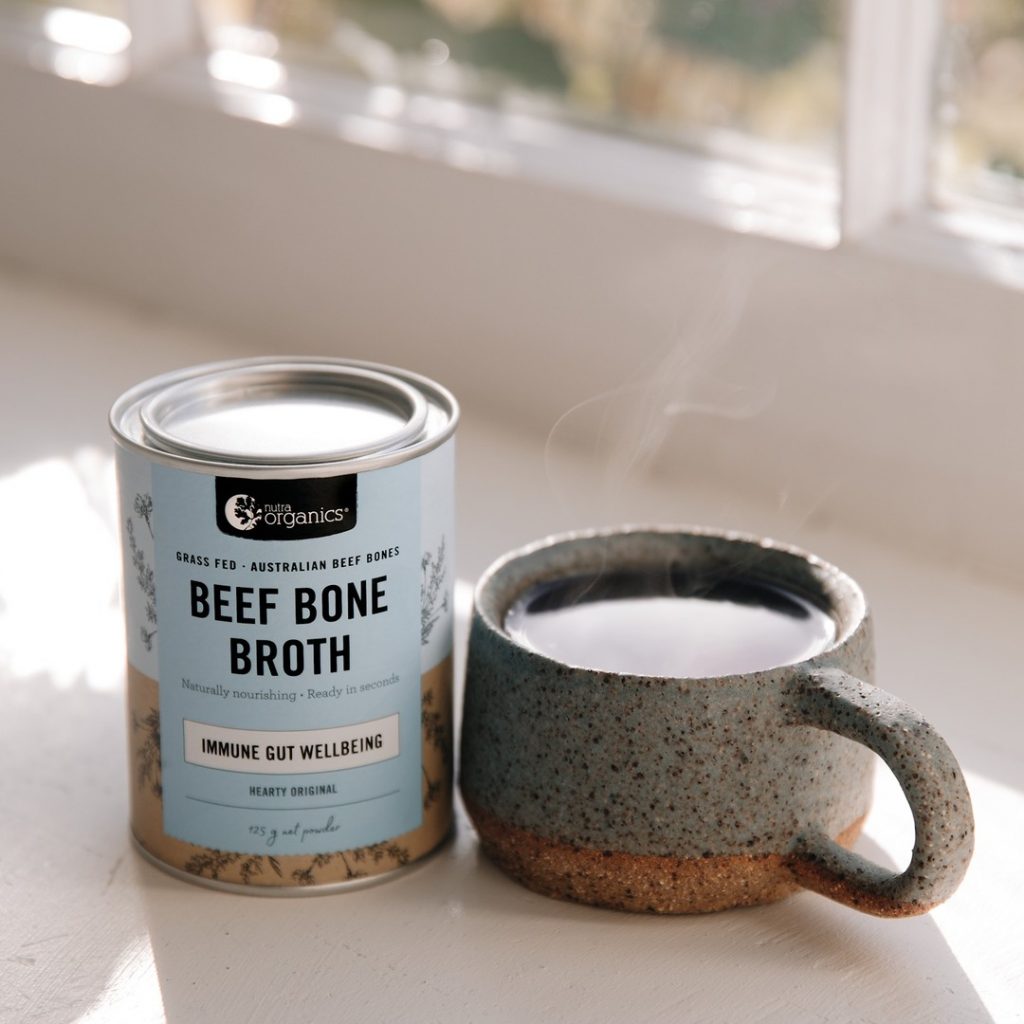
Broth provides building blocks for the rapidly growing cells of the gut lining and has a soothing effect on any areas of inflammation in the gut.
Broth contains minerals in a form the body can absorb easily—not just calcium but also magnesium, phosphorus, silicon, sulphur, and trace minerals. It contains the broken down material from cartilage and tendons—stuff like chondroitin sulfates and glucosamine, now sold as expensive supplements for arthritis and joint pain.”
There are many health claims regarding bone broth and gut health. Many people use bone broth for gut health because it is easy to digest and is believed to aid in the digestion of other foods. Gelatin, which is naturally found in bone broth, attracts and holds liquids and can bind to the water in your digestive tract, which helps foods move through your gut more easily.
One of the biggest bone broth gut health claims, however, is that bone broth is believed to heal the mucosal lining of the digestive tract. There has not been enough research to support this, but a few studies have shown that bone broth was able to protect and heal the mucosal lining of the digestive tract in rats. While this is promising, it has yet to be determined whether it can do the same in humans.
The gut healing properties of bone broth are attributed to an amino acid in gelatin called glutamine. This amino acid helps to maintain the function of the intestinal wall and has been known to prevent and heal a condition known as “leaky gut”.
For those looking to remedy their leaky gut, drinking bone broth may be a beneficial food. Because of its numerous gut healing properties, it may also benefit individuals suffering from other gut health conditions.
Nutra Organics have a delicious range of organic powdered broths that are easy to add to a wide range of meals. There’s Vege, Beef and Chicken with lots of different flavours.
Photo https://nutraorganics.com.au/
Oats
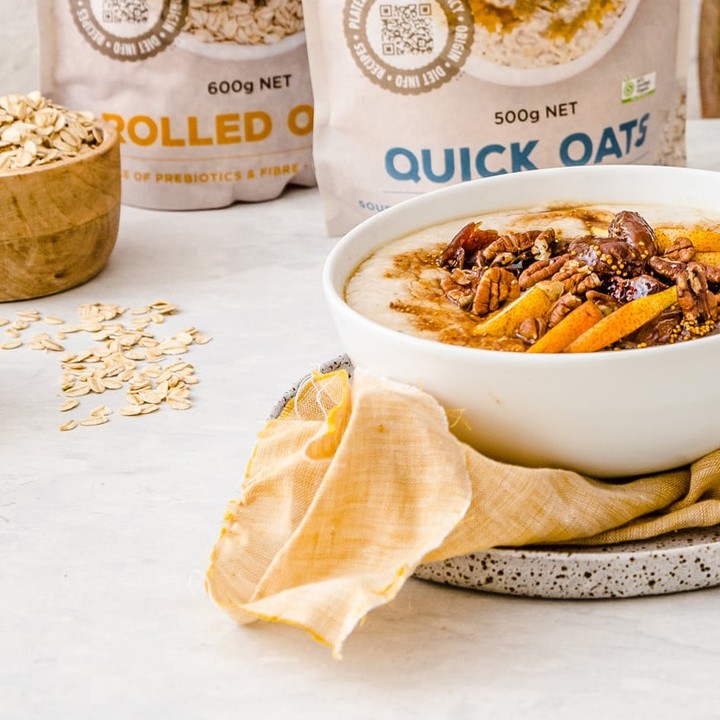
Oats a very versatile and nutritious food. A warm bowl of porridge is one of the most
nourishing meals and is so simple to make. They are a great source of vitamin,
minerals, fibre and antioxidants. Oats regulate bloods sugar levels and blood cholesterol levels, assisting in weight management.
In Ayurvedic medicine oatmeal balances constitutional types,
soothing nerves and digestion, and boosting strength and vitality.
Oats are a sattvic food that promotes health and peacefulness.


